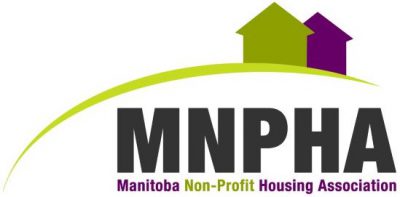This Board Toolkit has been designed for non-profit housing boards in Manitoba, and complements the MNPHA Building Boards training program. Many of the tools are developed and shared by MNPHA Members for the benefit of their colleagues in the sector.
The non-profit sector is defined by the community involvement and ownership that comes from governance through a board of directors. With changing relationships with government, the end of operating agreements, and an increasing need for non-profit housing providers to be self-sustaining, adaptable, and strategic, boards are truly the backbone of the non-profit housing sector and will lead the way in affordable housing provision in Manitoba.
This is an ever-growing toolkit on Board Governance for non-profit housing providers. If you have a good resource such as a board or operational policy template, or you’d like to suggest one, please contact us.
Some resources are password protected. Due to costs involved in creating them, they are available for MNPHA members only. If you are a member and need a password, contact us.
Governance
Principles
Summary: Governance vs. Management
Summary: Lines of Communication
Case Studies: Life Lease Governance – tenant involvement, succession planning, onboarding
Legal Duties
Effective Board Meetings
Working with Management
Select and Contract Management
Performance Evaluation
Effective Organisation
Board Orientation / Evaluation / Training
Board Orientation
Board Evaluation
While serving on a board is an important responsibility, board members should not consider their role a chore. Time spent on the board should be a rewarding and satisfying experience. Self-evaluations should uncover the health of the board member’s attitude toward the role.
Board Training
Succession Planning
Board Policies
You may also find the following samples / templates useful:
- Sample: Code of Conduct and Confidentiality
- Sample: Conflict of Interest Policy
- Template: Respectful Workplace Policy (password protected)
(The last document is exclusive to MNPHA members and students of the Building Boards Training program. If you are a member or a student, please request a password at [email protected])
Effective Annual Meeting
Committee
Essential Corporate Documents: bylaws
Extended Reading
More on Non-Profit Organizations
- Resource: Indigenous Organizations in Manitoba
- 8 Steps to Build a Cooperative
- Creating a Non-Profit Organization
Understanding Non-Profit Housing
Strategic Planning
Mission, Vision, Values
Articulating organizational values can help a Board of Directors make decisions about priorities, actions, and responsibilities, as well as clarify the direction of the organization and influence future planning.
Summary: 6 Habits of True Strategic Thinkers
Summary: Understanding Strategic Planning
Tool: Identify Planning Process Issues and Outcomes
Summary: What are your Values?
See how other housing organizations have developed strategic plans
Gathering Data and Using Key Performance Indicators
Gathering information from stakeholders is a key step in strategic planning.
Tool: Create an Information Gathering Plan
If you are updating a strategic plan, it’s important to assess how your previous plan has gone
Tool: Strategic Plan Review Questions
How will you know if you are achieving your goals in your strategic plan? Key Performance Indicators (KPIs) are the quantifiable, outcome-based statements you will use to measure if you are on track to meet your goals or objectives.
Advocacy and Partnerships
Finances
Understanding Financial Reports and Audits
Financial Statements
Understanding and approving your organization’s financial statements is one of the Board’s key roles
Tool: Financial Statement Review Questions
Guide: A Guide to Financial Statements
Resource: Definition of Terms for Financial Statements
Audits
Operating Budget and Capital Planning
Operating Budget
Capital Budget
Visual: The Stages of Capital Projects
